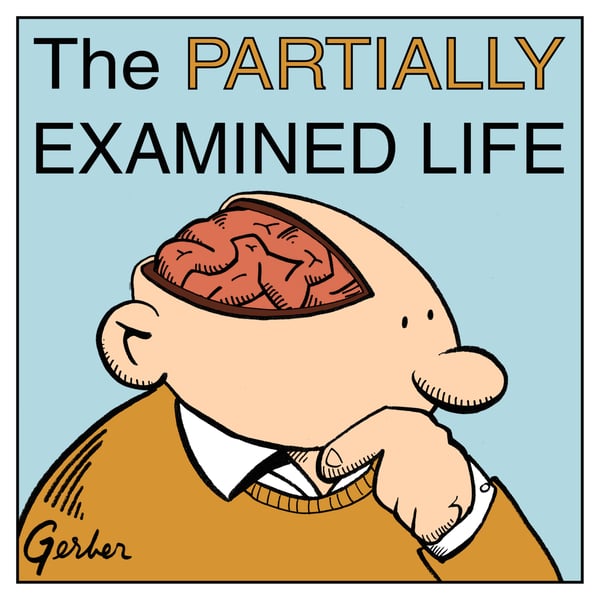Ep. 230: Bruno Latour on Science, Culture, and Modernity (Part Two)
The Partially Examined Life Philosophy Podcast
Mark Linsenmayer
4.6 • 2.3K Ratings
🗓️ 2 December 2019
⏱️ 58 minutes
🧾️ Download transcript
Summary
Continuing on Latour's We Have Never Been Modern (1993) with guest Lynda Olman.
Latour rejects the idea of objective truth totally apart from perceivers, so is he an idealist? We lay out the "Constitution" of modernity that keeps science and politics separate, how it makes it difficult for us to address issues like climate change, and what Latour thinks should replace it.
Start with part 1 or get the full, ad-free Citizen Edition. Please support PEL!
End song: "Mono No Aware" by Guy Sigsworth, as discussed on Nakedly Examined Music #109.
Transcript
Click on a timestamp to play from that location
| 0:00.0 | The Partial Examined Life relies on your support to find out how to help in ways that are cheap or even free for you. |
| 0:05.4 | Please visit partialexaminalife.com slash support. |
| 0:17.0 | You're listening to Partial Examined Life episode 230. |
| 0:19.9 | Part 2 we've been talking about Bruno Latour as we have never been modern. |
| 0:23.6 | Then it was just saying that actually, despite appearances, |
| 0:26.7 | the tour is not a social constructionist. |
| 0:29.1 | I guess I see what he's doing maybe in your talk, |
| 0:31.8 | a blinda of him seeing what we would call scientific facts as resistant as still being some sort of social ontology in the phenomenologist sense. |
| 0:41.6 | Right? The phenomenologist did not say because I'm doing phenomenology that everything is just flowing from my consciousness that I, |
| 0:49.6 | it's my transcendental ego that's creating all this. |
| 0:52.2 | No, when you're phenomenologist, you specifically put that aside. |
| 0:55.6 | So it's just this is the world that we live in. |
| 0:59.0 | And some of the facts that we believe in have an obvious source in our ideology. |
| 1:05.1 | And the way to change them would be to convince people to think different things. |
| 1:09.8 | And some of these facts are resistant, but still it seems more a matter of degree than a matter of fundamental kind. |
| 1:18.2 | Because if it was a matter of fundamental kind, then you couldn't have hybrids, right? |
| 1:23.0 | What is it to have something that is partially natural, but partially social in that resistance terms? |
| 1:29.6 | Well, it just it resists less. |
| 1:32.4 | We should think about this in concrete terms. |
| 1:34.6 | Could the concept of a quark to use the famous example? |
| 1:38.4 | Could that be understood in some different ways or some hypothetical world with different social arrangements that would lead to a different outcome? |
| 1:47.6 | For that particular concept at this stage of inquiry, you know, you can think of the ideal of inquiry. |
... |
Please login to see the full transcript.
Disclaimer: The podcast and artwork embedded on this page are from Mark Linsenmayer, and are the property of its owner and not affiliated with or endorsed by Tapesearch.
Generated transcripts are the property of Mark Linsenmayer and are distributed freely under the Fair Use doctrine. Transcripts generated by Tapesearch are not guaranteed to be accurate.
Copyright © Tapesearch 2025.

